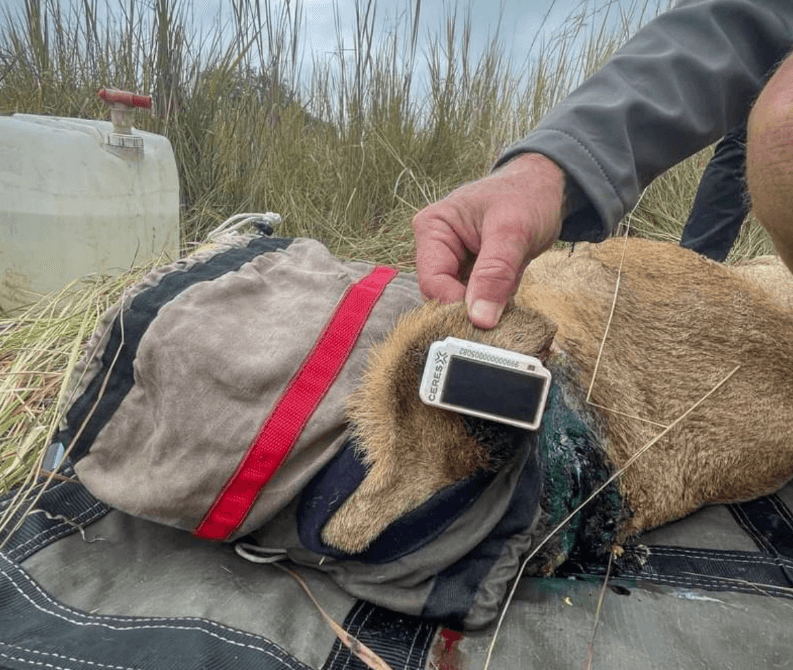We’re exploring big questions in conservation tech sustainability as we build our next editorial series focusing on that very subject. As a global community focusing on creating positive impact in conservation, we see a huge opportunity to work together on lessening any negative impacts on the environment!
What steps do you already take to make your conservation tech work more sustainable? (Ex: Recycling batteries, trading, repairing, or donating older equipment, consciously planning travel to the field to reduce your carbon footprint, etc.)
Do you have practical steps in mind that we could take together to make our field more sustainable? And just as importantly, what “blue-sky” big ideas should our community reach for in terms of sustainability?
We'd love to hear more from our growing climate change community as this discussion grows, so please chime in with your thoughts!
28 June 2022 11:22pm
I bring all used batteries I use for passive acoustic monitoring in Madagascar back with me to the US, as there is no way to properly recycle lithium/alkaline/etc batteries in-country there. It's a pain though, because they are so heavy and often leaves me with either a 35lb carry-on or a $150 extra-bag fee. I've had trouble even in America trying to figure out where to recycle different kinds, since some places only take NiMH, or some only take alkaline, and the requirements for e.g., packaging if you want to mail them to a recycling center are different (plus this is expensive too). And especially in rural areas, there may not be a place to recycle electronic waste for miles. I currently live in NYC but when I have lived in rural areas in the past, I've had to drive legit like 40 miles to drop off used batteries at the nearest Staples or whatever.
Earth911 and Call2Recycle have online search functions that in theory identify places to recycle different types of batteries but I have found them to be clunky, outdated in some cases, and confusing.
In terms of the recorders themselves, I've kept them with local collaborators & research stations in Mada for future use, and have a sort of informal "rent" program for those who want to use them in the future. It's really difficult shipping anything to Madagascar so you really kind of have to personally courier equipment in (which increases carbon footprint in & of itself). So now that I've got some equipment there, I want to keep it all there to avoid these roadblocks for others in the future.
My carbon footprint is honestly so much lower when I'm the in field that it kind of evens out the plane travel over. Obviously in a perfect world this wouldn't be necessary, but we've found that in-person training is absolutely necessary and not easily replaceable by anything virtual. But, I exclusively use local field techs/guides, so it's just me flying over rather than bringing RAs, etc. from the US. No perfect solution though, everyone is bound by different circumstances, logistical constraints, budgets, etc.
I know this has been discussed in the past in different WILDLABS ventures, but a "marketplace" of some kind where people could trade/rent/etc equipment I think would be super useful. Even just to post that you have a trail cam or GPS tag or whatever that isn't working and you don't know how to fix it but are willing to ship it off to someone if they want to tinker (I personally have 2 cameras that aren't working but I don't have the time/knowledge/etc to trouble shoot myself, and would gladly give them to someone else). I feel like there have been increasingly a lot of posts here and elsewhere about renting equipment especially with all the supply chain issues during covid (& on going), especially for Audiomoths.
Ok I think I'm done word vomiting now.... lol excited to continue these conversations!
29 June 2022 5:28am
At Ceres Tag, it is important that we are sustainable and have little to no impact on the environment.
- The battery life of the tag is 10 years and is recharged via solar panels. One battery for the life of the tag.
- No off-animal re-charging required
- No additional batteries
- The only commercial, direct to satellite, animal monitoring ear tag
- No onsite infrastructure to set up or take down
- No towers or other infrastructure such as receiving stations, radios or large power systems required
- Biosecurity and pandemic safe.
- Ceres Tag staff do not need to visit sites where the tags will be applied
- Our packaging is recyclable.
- Our e-commerce platform, allows for direct purchase from cerestag.com.
- Which means, direct to manufacture order with little or no paperwork for ordering.
By Ceres Tag designing the systems and tags in this manner, It will also allow for your carbon footprint to be minimal on the ground once you apply the tags. You can be anywhere in the world and view animals, without being in the same location
29 June 2022 8:42pm
Most of what I have done has been in a couple areas:
* Sensor re-use and repair, to the extent possible. This is an area where, especially with acoustic sensors, replaceable microphones have been a godsend that have really enabled us to extend the lifespan of older units
* Rechargeable batteries for some deployments. These don't travel well and don't have quite the life of alkalines, but for our sensors that are easily serviced (local to us) we use rechargeables to minimize waste. This was originally a long-term cost-cutting measure but has also let us minimize e-waste as a convenient side effect.
More generally, in my thinking about climate, it's worth it to emphasize that the carbon budget isn't zero, it's just finite. There are carbon-intensive activities that are sometimes worth it, it's mostly a question of how do we evaluate that. In the case of conservation tech work, if we can use our knowledge and skills to, for example, minimize bird or bat take from renewable energy in ways that improve generation uptime or reduce community backlash, that can more than offset (in conceptual, if not concrete terms--I haven't done the math on this yet) a few higher-emissions research or conservation activities. Of course, we should work to minimize our impact however we can, but our sector is such a very small portion of the global economy and so our contribution to the broader decarbonization push is likely a better use of our collective time and resources.


















Carly Batist